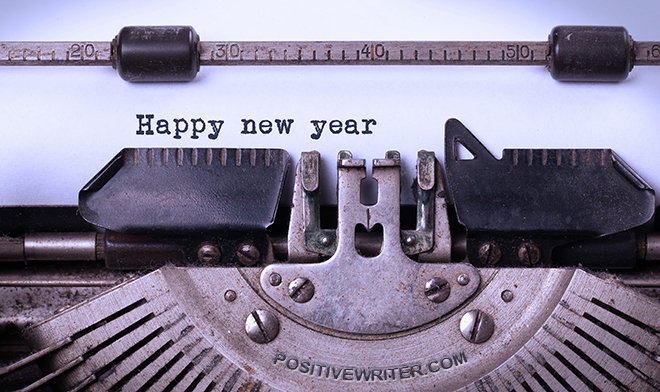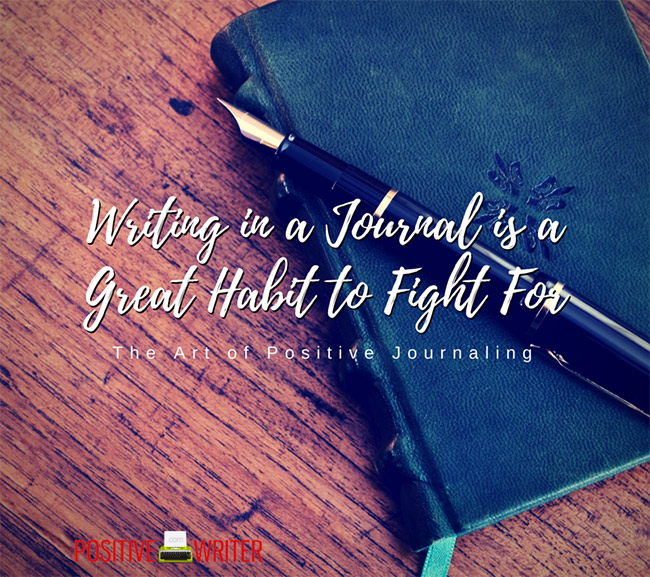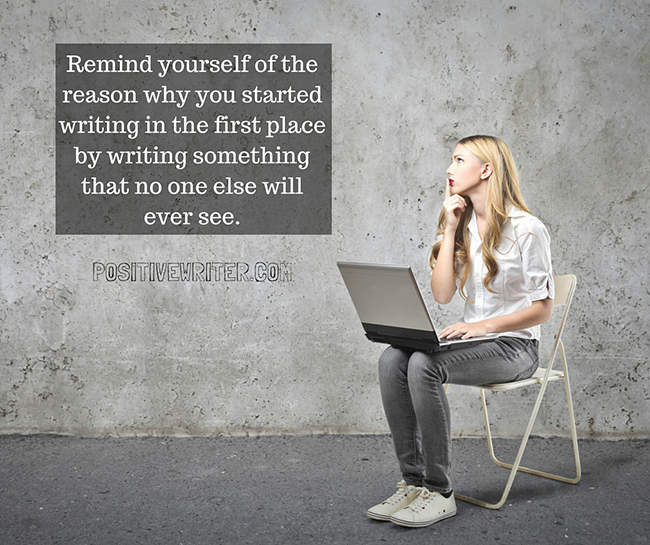I recently had the privilege of proofreading Bryan Hutchinson’s new book, The Wee-Jees. Not only was it a wonderful chance for me to read a new story before it was officially released, but it was also excellent practice for me when it came to proofreading my writing.
But wait—does it even matter if I’m good at proofreading or not? Don’t spellcheck and autocorrect exist for a reason? Can’t I just hire someone to do it for me?

Note: This is a post by Positive Writer contributor Kate Foley.
The short answer: yes, being a good proofreader does matter.
You can—and should—hire a professional proofreader before publishing your work, but as the writer, you need to be the first set of eyes. You will save yourself time and money by investing in your own proofreading habits. The proofreader you hire should only have to catch final mistakes, not giant ones. Otherwise you will be looking at a much heftier bill than you bargained for.
But how does one proofread? And how does one do it well?
Luckily, my time with The Wee-Jees allowed me to come up with a list of fifteen quick and easy tips for more thorough, more time-efficient proofreading.
1) Clear your mind
Never proofread when you are tired or rushed. If you are not 100% focused on your work, you will miss something. You will miss things, plural.
Block out plenty of time to get your work done and don’t try to bite off more than you can chew within that allotted time. Set your phone aside, turn off notifications from e-mail and Facebook, and get to work.
2) Avoid distractions
Distraction is a recipe for glossing over misspelled words and missing commas. A conversation from the table behind you, a screaming baby, or even a TV in the background can trip you up.
If you’re someone who needs complete silence to focus, invest in a pair of noise-cancelling headphones, or at least retreat to a room that is quieter from the rest of the house. If you need ambient noise to work—like me—try playing classical music or some other noise without words or lyrics. My personal favorite resource is Coffitivity, which is ambient coffee shop noise that transforms my room into a bustling café.
3) Try proofreading at different times of day
Our brains are hardwired to be more effective at certain tasks at certain times of day. Just like you probably write better at different times, you will be better at catching mistakes in your writing at different times.
Try proofreading in the morning, afternoon, evening, and late at night. Spread out this proofreading time over four different days so you can analyze the results. When do you feel calmer and more focused? When are you better at catching grammatical mistakes?
For me, I prefer working well after dinner; proofreading feels like a sort of meditation, so I like to allow myself that quiet and focus right before I go to sleep. See what works for you!
4) Spread out your work
Take it from someone who’s made the same mistake, don’t try to do all of your proofreading at once. Don’t even try to do it all within a few days. Allow yourself to get little bits done over longer periods of time. Trust me.
5) Get plenty of sleep
Proofreading with a groggy mind is not fun. Get those eight hours, if you can, before you work. If you can’t get the full eight hours, at least aim for something higher than four. Be kind to your mind.
6) Read the document out loud
When you read out loud, you are forced to sound out every word, even the smaller ones you can skip over in your mind. This is one of the best ways to catch missing words or words that have been written out twice; your brain can’t fill in the blanks for you when you’re speaking the sentences.
If you can’t proofread in private, try whispering or even mouthing the words to yourself. Any little bit helps.
7) Use a ruler to look at one sentence at a time
This is a unique little trick I learned when I began proofreading for others. It’s a huge help when you’re feeling unfocused.
Place a ruler directly underneath the sentence you’re currently reading to cover up the lines that come after it. This forces your eyes to focus on one line at a time, rather than skipping around the page and missing mistakes or getting overwhelmed.
8) Sound out longer words
When you look at a long word, your brain tends to “autocorrect” it in your mind; it still recognizes the word even if it is misspelled.
When you come across a word longer than three syllables, sound it out, bit by bit. If you focus on each syllable on its own, it will be easier for you to catch missing or misplaced letters.
9) Watch out for homophones!
Just because a word sounds correct doesn’t mean that it’s the right word. I write down wrong homophones all the time; it’s only in the proofreading stage that I realize what I’ve done.
Common homophone mistakes include: principal/principle, hear/here, right/write, bare/bear, marry/merry, and many others.
10) Look out for double words
“The boy walked to to the store.” Do you see the mistake?
Double words almost always happen when they’re small, the ones that we tend to skip over in our heads (this is where reading out loud comes in handy). Keep your eyes peeled for these.
11) Proofread for more than just spelling and punctuation
Proofreading isn’t just a way to test English majors on their spelling and punctuation: you have to recognize other mistakes as well.
What I mean by this is formatting: keep an eye out for changes in font, extra spaces in front of paragraphs, inconsistences in the way names are spelled or certain words are capitalized, inconsistencies in the spaces between chapter breaks, and so on.
You want your writing to be spelled correctly and formatted neatly. This is what makes your writing stand out as being more professional.
12) Keep track of common mistakes
If you notice that you’ve made a certain mistake more than once within a single document, keep note of that. You can save yourself some time by searching for that mistake in particular and fixing every instance of it at once.
Utilize the “CTRL + F” function and search for words you consistently misspell or other slip-ups you’ve noticed. This is a great way to be more efficient.
13) Don’t forget to proofread beyond the actual text
This goes along with #11: proofreading your writing is important, but once you’ve finished that, don’t forget to check other parts of the document as well.
Make a second pass on your table of contents, page numbers, headings, and anything else you might have ignored when jumping straight into your main paragraphs. Mistakes occur at this level as well.
14) Use spellcheck
Spellcheck should not be your only line of defense, but it would be a waste of a perfectly good tool not to use it at all.
Once you’ve finished checking everything beginning to end, run spellcheck as a last measure. Inevitably, you will have missed something obvious that spellcheck can fix for you. Take advantage of that.
15) Finally, hire a fresh set of eyes
The truth of the matter is, proofreading is hard, time consuming, and much more difficult when you’re looking at your own writing. There is plenty you can and should fix on your own, but nothing will replace that second set of eyes.
Hiring a proofreader is essential before you publish anything. The last thing you want is to not be taken seriously by others in the industry because you had a typo on page seven. There is an easy way to do that: hire a professional.
If you’re at step #15 now and you’re ready to hire someone, you’re in luck: I am a certified proofreader and I’m officially open for business. I will apply my eagle eye to anything you need to be polished: novels, short stories, resumes, cover letters, blog posts, advertisements, and more. The sky’s the limit!
If you’re interested in my services, please don’t hesitate to contact me at themagicviolinist (at) gmail.com. Tell me the details of your project and the timeline for which you’re aiming and we can work something out that fits both your needs and your budget. I’m committed to giving you professional treatment without emptying your wallet.
And that’s it!
Once you’ve checked your document, double-checked it, and hired someone else to finish the job, you’re done! You can sit back, relax, publish your writing, and bask in the glory of your work. Pat yourself on the back for not cutting any corners and get ready to start all over again with the next project.
Do you use all of these tricks? What other tips do you have for proofreading? Let us know in the comments!
Don’t forget, Bryan has some great prizes celebrating the release of The Wee-Jees, you can get your name in the hat, (click) here and receive a free book on writing. (Expiring soon!)



















